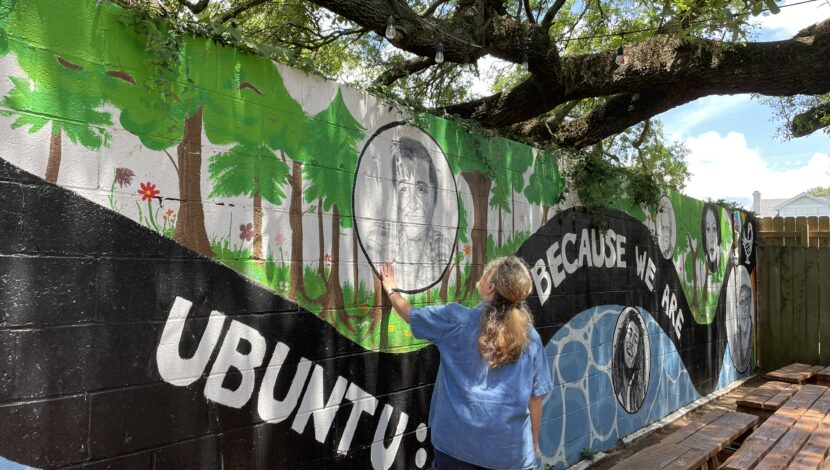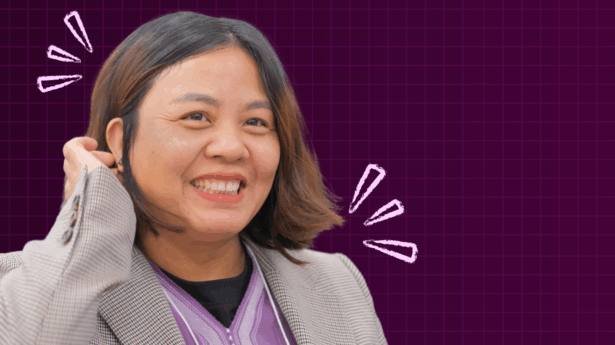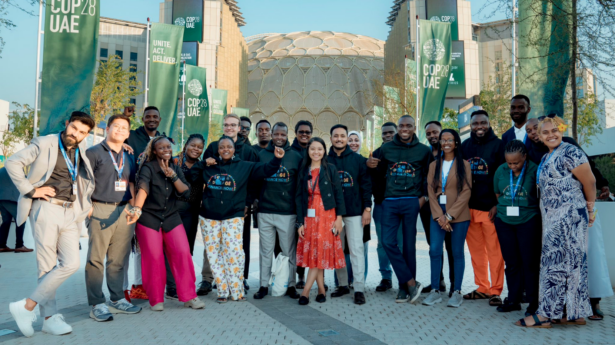The Unitarian Universalist Service Committee advances human rights through grassroots collaborations.
UUCSJ: Living Abolition in New Orleans

August 22, 2024
Since its inception, the UU College of Social Justice (UUCSJ) has offered a distinct form of justice education designed to forge lifelong connections to movements for social change. Instead of focusing on theory in isolation, UUCSJ provides opportunities for participants to learn directly from the leaders of grassroots movements working for justice.
Piloting “Practice the Practice: Experiential Education for Religious Professionals”
The College’s latest program carries on this tradition—which has roots in age-old pedagogies, which dominant culture tried (and failed) to suppress—of emphasizing experience alongside theory. The new program, called—fittingly—”Practice the Practice,” brings religious professionals to the city of New Orleans to learn from the experience of people for whom collective liberation is not just an idea, but a way of life.
Religious professionals are a diverse group that includes clergy, directors of religious education, seminarians, and many others. They come from many different communities and are at various stages of their own learning about what it means to be in solidarity with grassroots movements in a responsible way.
Practice the Practice was therefore born from a recognition both that justice-centered experiential education is a powerful tool and that many religious professionals need support to learn how to lead such experiences skillfully, responsibly, and in right relationship with the communities in which the experiences are shaped.
To further both goals, UUCSJ hosted a first-of-its-kind pilot journey of the Practice the Practice course in New Orleans, Louisiana, called PTP 2024 New Orleans—Abolition: Surviving and Flourishing as a Collective (Place-based Justice Education). This experiential journey to New Orleans was the culmination of a series of sessions that began with an online component in January 2024.
A Place-Based Approach to Justice
Over the course of four days in New Orleans, from May 21 to May 24, participants in the pilot journey met with community leaders working to abolish systems of oppression at the local level. They learned that these activists’ work is intimately tied to the place they call home. So, to understand it, participants also had to learn about New Orleans.
The history of New Orleans has been shaped by resilience and joy, as well as repeated patterns of structural oppression. Ashana Bigard, founder of Amplify Justice and an education advocate and organizer working for legislative reform, shared aspects of this history as part of the program’s orientation to New Orleans as a place.
One participant, Kirsten, recalls some of the recent history that Bigard shared with the group:
Ashana shared many stories with us about the New Orleans school system—a school system that was already struggling in many ways, but was then systematically gutted in years following Hurricane Katrina. She told us about the complete turnover to charter schools, the promises that were made—and the vast amounts of money given to fulfill those promises—and then story after story of corruption, broken promises, educational neglect, and harm to the children of New Orleans, children who were already traumatized following the hurricane and the unfolding consequences that have played out from then to now, 18 years later.
Despite these entrenched patterns of injustice, community leaders also emphasized the richness and beauty of New Orleans as a community. As one participant recalled, Mr. Ernest Johnson, director of Ubuntu Village NOLA, told the group that, “he uses the culture of New Orleans as medicine to help him through the difficult parts of fighting for justice.”
Being in Right Relationship
Program participants also reminded themselves throughout the journey that they were there in New Orleans by the consent of their community partners. The experiences of local leaders therefore needed to be at the center of the curriculum; and participants in the journey needed to be in accountable and responsible relationship with these partners.
One aspect of centering the experience of community leaders meant reframing the struggle for social justice. Instead of understanding concepts like abolition or collective liberation as tearing down existing structures or creating comprehensive alternatives overnight, community leaders encouraged participants to think of these ideals as embodied practices that can be enacted in daily life.
As one participant, Patti, recalled:
I was inspired by Mr. Johnson’s thoughts about “our illusion of structured systems” including our drive to create things like five-year strategic plans. He reminded us that our energy and heart may be better spent focusing on what we are doing each day for individuals. He said, instead of a five-year plan, he thinks of each day in those five years; 1,825 moments to do something for someone. That is a vision that can change the world.
You can read a full collective diary of the group’s learnings here, including participants’ impressions of their meetings with other community partners in New Orleans. These partners included Black Men Rising, which offers peer mentorship to people in the juvenile legal system, the Guerilla Garden, Studio Be, and more. We thank them all for making this work possible.
You can also sign up to express interest in the next round of Practice the Practice. There will be future versions of the program for other religious professionals. Please reach out to info@uucsj.org if you are interested in being notified about the next iteration.
Image credit: UU College of Social Justice

